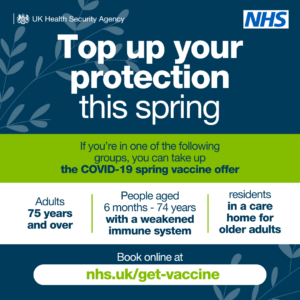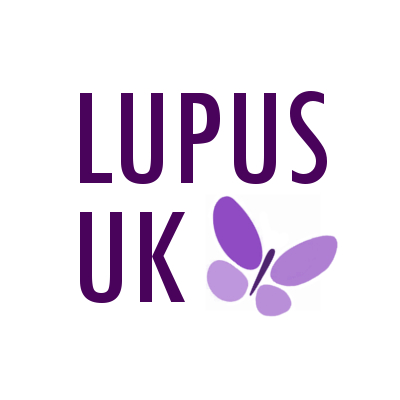The NHS Spring 2025 COVID-19 booster vaccination scheme is starting across England, Scotland, Wales and Northern Ireland.
NHS staff has begun administering the first doses of the spring Covid-19 vaccine. NHS officials are urging those most at risk to secure their appointments as soon as possible.
- If in England, you can book your booster vaccination online or by calling 119.
- If in Scotland, you will be invited for your booster vaccination by text, email, or letter. If eligible you can also book your appointment.
- If in Wales, you will be contacted with an appointment invitation.
- If in Northern Ireland, you should contact your GP surgery or pharmacist to get your booster vaccination.
What is a booster vaccination?
A booster vaccination is a vaccination that is given after an initial vaccination. It helps to maintain an immune response to an infectious illness. In the case of COVID-19, the booster vaccination helps to provide increased protection against complications and severe symptoms of COVID-19.
Who is eligible?
 This year’s spring booster is available to:
This year’s spring booster is available to:
- Adults aged 75 years and over (including those who will turn 75 by 17 June 2025)
- Residents in a care home for older adults
- Individuals aged 6 months to 64 years in a clinical risk group
Eligible individuals can book their vaccinations through the NHS App, the NHS website, or by calling 119 for free. Some may also receive invitations directly from their GP.
To make access easier, local NHS teams are ensuring vaccines are available close to home. Around 7.5 million people will be invited via email, NHS App notifications, text messages, or letters. However, people do not need to wait for an invitation—they can book their appointment now.
In England, in addition to scheduled appointments at GP clinics and pharmacies, thousands of walk-in slots are available daily. A full list of walk-in sites can be found on the NHS walk-in finder.
What do I do if I think I’m eligible but haven’t been contacted?
If you think you’re eligible for the vaccine but haven’t been contacted yet, it’s best to get in touch with your GP. They’ll be able to check your eligibility and help arrange an appointment if needed.
Why Get Vaccinated Again?
A COVID-19 booster in spring helps keep immunity strong because protection from previous vaccines and infections fades over time. The virus also keeps changing, and updated boosters are designed to protect against the latest strains. People at higher risk, such as older adults and those with certain health conditions, benefit the most, as they are more likely to get seriously ill. Boosting in spring also helps prepare for possible future waves, especially since respiratory viruses tend to spread more in colder months.
Recent NHS data shows that more than 1,000 Covid-19 patients are hospitalised daily (as of 23 March), highlighting the ongoing threat of the virus. The vaccine offers crucial protection against multiple variants, reducing the risk of infection, transmission, and severe illness requiring hospitalisation.
According to the UK Health Security Agency (UKHSA), last year’s spring vaccination campaign showed that those who received the jab were over 40% less likely to be hospitalised with Covid-19 for up to two months after vaccination compared to those who were unvaccinated.
Are household contacts eligible for a booster vaccination?
Previously, household contacts of people who are immunosuppressed were included in the booster vaccination programmes. However, for the Spring 2025 booster campaign, they are not currently eligible. This guidance may vary across the different nations of the UK, so we will update this page if any national NHS body includes household contacts in their eligibility criteria.
Which vaccines are available this spring?
The UK uses two main types of COVID-19 vaccines. If you’re eligible for an NHS vaccine, you’ll be given the most suitable one—you can’t choose which one you receive.
All NHS-approved COVID-19 vaccines are free from animal products, including eggs.
You’ll get a booster shot from Pfizer (Comirnaty) or Moderna (Spikevax) , which are approved in the UK. These updated vaccines work better against newer COVID-19 variants (like Omicron) and help increase your protection.
It does not matter if you have been given different COVID-19 vaccines previously – it is safe to receive either of these vaccines. Children under 12 years old who are eligible for booster vaccination will receive a small dose of vaccine compared to adults. In the UK, children are given the vaccine made by Pfizer.
Are there any side effects for a COVID-19 booter vaccination?
Common Side Effects
Like your previous doses, the updated COVID-19 vaccines may cause:
• Sore, heavy, or tender arm (worst in the first 1–2 days)
• Tiredness
• Headache
• Mild flu-like aches
These usually last less than a week. Rest and paracetamol (follow the package instructions) can help.
If symptoms worsen or you’re worried, call NHS 111 (or text/call 18001 111).
You can also report side effects via the Yellow Card scheme
Serious Side Effects (Very Rare)
In rare cases (mostly in younger men), the Pfizer or Moderna vaccines have been linked to heart inflammation (myocarditis or pericarditis). Most people recover quickly with rest and simple treatment.
Seek urgent medical help if after vaccination you have:
• Chest pain
• Shortness of breath
• A fast, fluttering, or pounding heartbeat
If you had a serious reaction to a past dose, talk to your doctor before getting another vaccine.
I had an adverse reaction to a previous dose of the vaccine, should I have the booster?
If you experienced significant side-effects or an adverse reaction from any previous dose of the COVID-19 vaccine, speak to your healthcare team to discuss what may be best for you.
According to the JCVI Green Book, there are very few individuals who cannot receive the vaccine. Following careful monitoring of the vaccine rollout, they have issued specific guidance for those with allergies and those who have had an allergic reaction to a previous dose of the vaccine. Your healthcare team will follow this guidance and can discuss the options with you.
Should I have the booster vaccination if I am unwell or experiencing a lupus flare?
If you are experiencing a lupus flare, get in contact with your rheumatology team to discuss whether now is the right time to receive your COVID-19 booster vaccination.
If you are unwell, you should wait until you are recovered to receive your COVID-19 booster vaccination.
If you have a fever, or think you may be infectious, please do not attend your vaccination appointment, and reschedule for when you are recovered.
Can I have the vaccine on the same day as other vaccine?
If you’re eligible for the RSV (respiratory syncytial virus) vaccine, health experts recommend getting it on a separate day from your COVID-19 vaccination to allow your immune system to build the strongest possible response to each. However, during winter months, you can conveniently receive both your COVID-19 and flu vaccines during the same appointment.
Are the booster vaccinations safe for people with lupus?
Vaccinations can be a difficult topic to navigate if you have lupus. The COVID-19 booster vaccination is generally safe for people with lupus to receive.
If you have any concerns about receiving the vaccination, you can talk to your rheumatology team or GP team.
Our online community forum is full of discussions on various topics, including people’s experiences of vaccinations. Visit the forum here.
I am on immunosuppressive medication – can I have my COVID-19 booster vaccination?
In the UK, all COVID-19 vaccines used are safe for people with suppressed immune systems.
Immunosuppression may affect the effectiveness of the COVID-19 vaccination. However, it is still recommended that those who are immunosuppressed receive their booster vaccinations, as there is some evidence that repeated doses can help provide better protection.
If you are concerned about the effect of immunosuppression on your ability to have the COVID-19 booster vaccination, contact your healthcare team via phone or email to find out more.
Some examples of immunosuppressive medications include:
• Azathioprine
• Methotrexate
• Leflunomide
• Mycophenolate
• Ciclosporin
• Tacrolimus
• Sirolimus
• Cyclophosphamide
Biologic medications such as rituximab, belimumab and anifrolumab also suppress the immune system.
Hydroxychloroquine is not classed as an immunosuppressant.
Can I get Covid even after vaccination?
The COVID-19 vaccine lowers your risk of serious illness this spring and summer. Your body needs a few days to build protection after vaccination. While no vaccine works perfectly, it makes any infection you might get much milder.
Useful links:
NHS England – https://www.nhs.uk/vaccinations/covid-19-vaccine/
NHS Scotland – https://www.nhsinform.scot/covid19vaccine/
NHS Wales – https://phw.nhs.wales/topics/immunisation-and-vaccines/covid-19-vaccination-information/
NHS Northern Ireland – https://www.nidirect.gov.uk/articles/covid-19-vaccine
NHS Walk in Finder – https://www.nhs.uk/nhs-services/vaccination-and-booking-services/find-a-walk-in-covid-19-vaccination-site/
Yellow Card Scheme – https://coronavirus-yellowcard.mhra.gov.uk/
JCVI Green book – https://assets.publishing.service.gov.uk/media/67d8a1979dc953ac3bfe9382/GreenBook-chapter-14a-COVID-19-17_3_25.pdf
Lupus UK Health Unlocked Forum – https://healthunlocked.com/lupusuk

